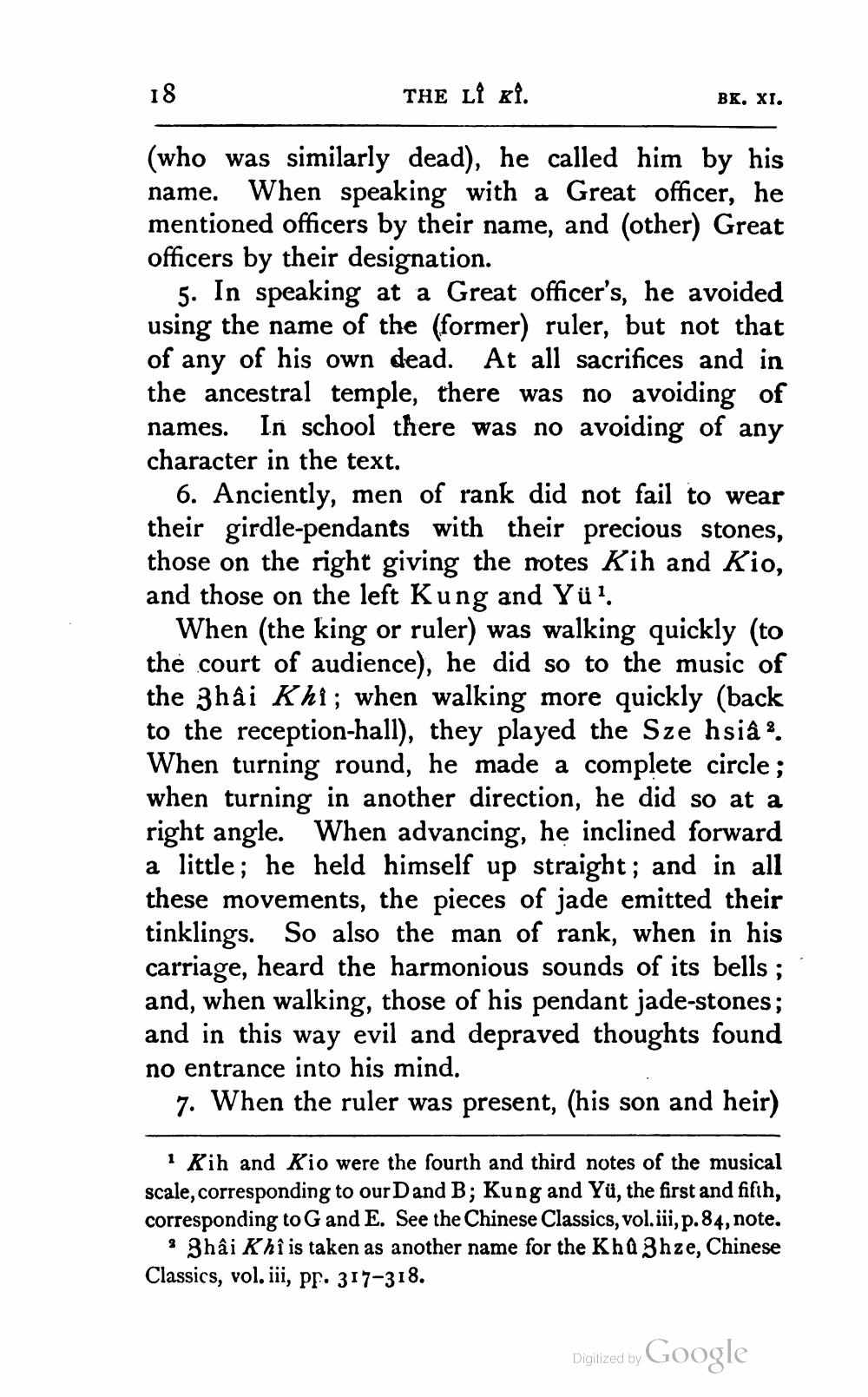________________
18
THE LÎ ki.
BK. XI.
-
(who was similarly dead), he called him by his name. When speaking with a Great officer, he mentioned officers by their name, and (other) Great officers by their designation.
5. In speaking at a Great officer's, he avoided using the name of the (former) ruler, but not that of any of his own dead. At all sacrifices and in the ancestral temple, there was no avoiding of names. In school there was no avoiding of any character in the text.
6. Anciently, men of rank did not fail to wear their girdle-pendants with their precious stones, those on the right giving the notes Kih and Kio, and those on the left Kung and Yül.
When the king or ruler) was walking quickly (to the court of audience), he did so to the music of the Zhài Khi; when walking more quickly (back to the reception-hall), they played the Sze hsia . When turning round, he made a complete circle ; when turning in another direction, he did so at a right angle. When advancing, he inclined forward a little; he held himself up straight; and in all these movements, the pieces of jade emitted their tinklings. So also the man of rank, when in his carriage, heard the harmonious sounds of its bells; and, when walking, those of his pendant jade-stones; and in this way evil and depraved thoughts found no entrance into his mind.
7. When the ruler was present, (his son and heir)
Kih and Kio were the fourth and third notes of the musical scale, corresponding to our Dand B; Kung and Yü, the first and fifth, corresponding to G and E. See the Chinese Classics, vol.iii,p. 84, note.
* Zhâi Khî is taken as another name for the Kha Zhze, Chinese Classics, vol. iii, pr. 317-318.
Digitized by Google




